Julian Assange flies to remote Pacific island in plea deal with US over espionage
WikiLeaks founder Julian Assange is due to land on a remote island in the Pacific on Wednesday, where his long-running campaign to avoid extradition to the United States will formally end and he will finally be a free man.
The 52-year-old will appear before a judge in the US territory of the Northern Mariana Islands to plead guilty to one charge, after the US dropped 17 other espionage charges against him.
Having already served 62 months in jail, he will then fly to his native Australia to be reunited with his wife, two young sons and other members of the family.
It follows his dramatic release from Belmarsh Prison in London – where he has spent five years, largely in solitary confinement, fighting extradition – and a deal with US prosecutors.
Assange’s wife, Stella, said she had travelled to Australia with the couple’s two young sons, Gabriel and Max, on Sunday when it became clear that Assange would be freed.
“It is hard to believe that Julian has been in prison for so long,” she said. “It had become normalised. I am grateful to the people who made this possible, but I am also angry that it ever came to this.
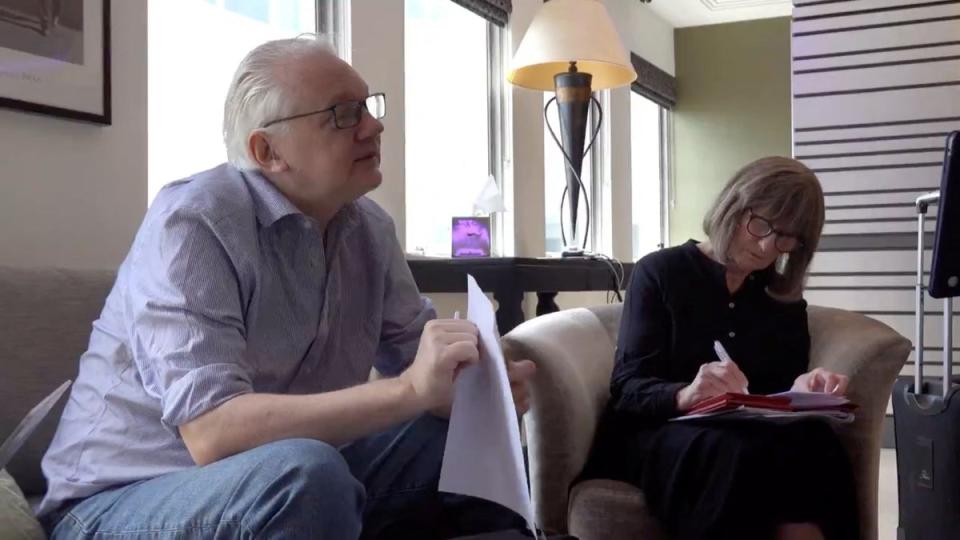
“Overall I am elated, but I cannot believe it is actually happening until I see Julian.”
She said her husband’s release would not have happened without the intervention of Australian prime minister Anthony Albanese, who has been increasingly vocal in demands for the United States to drop charges against Assange.
“The public climate has shifted, and everyone understands that Julian has been the victim,” said Ms Assange.
Assange will plead guilty to a charge under the Espionage Act of obtaining and disclosing information of national importance.
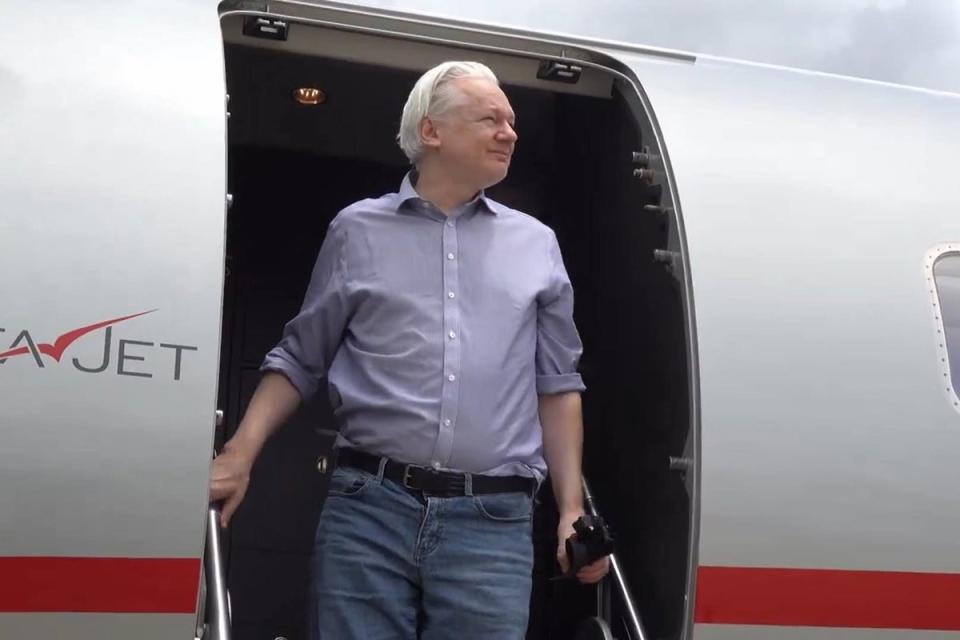
The charges against him stem from one of the largest publications of classified information in American history, which took place during the first term of Barack Obama’s presidency.
Assange was accused of conspiring with Chelsea Manning, a military intelligence analyst, to disclose tens of thousands of activity reports about the war in Afghanistan.
The documents included unfiltered US diplomatic cables that potentially endangered confidential sources, significant activity reports relating to the Iraq war, and information relating to Guantanamo Bay detainees.
The information was leaked between 2009 and 2011, the documents said, and was shared on Assange’s WikiLeaks website.
Last month, Assange won the right to appeal an extradition order after his lawyers argued that the US government had provided “blatantly inadequate” assurances that he would have the same free speech protections as an American citizen if he were to be extradited from the UK.
WikiLeaks announced that Assange had left Belmarsh on Monday after spending 1,901 days there, and had departed on a flight from Stansted airport chartered from VistaJet. British authorities later confirmed that the plea agreement had been signed on 19 June, and that Assange was on a flight that took off at 6.36pm on Monday.
Julian Assange boards flight at London Stansted Airport at 5PM (BST) Monday June 24th. This is for everyone who worked for his freedom: thank you.#FreedJulianAssange pic.twitter.com/Pqp5pBAhSQ
— WikiLeaks (@wikileaks) June 25, 2024
“This is the result of a global campaign that spanned grassroots organisers, press freedom campaigners, legislators and leaders from across the political spectrum, all the way to the United Nations,” WikiLeaks said in a statement. “This created the space for a long period of negotiations with the US Department of Justice, leading to a deal that has not yet been formally finalised.”
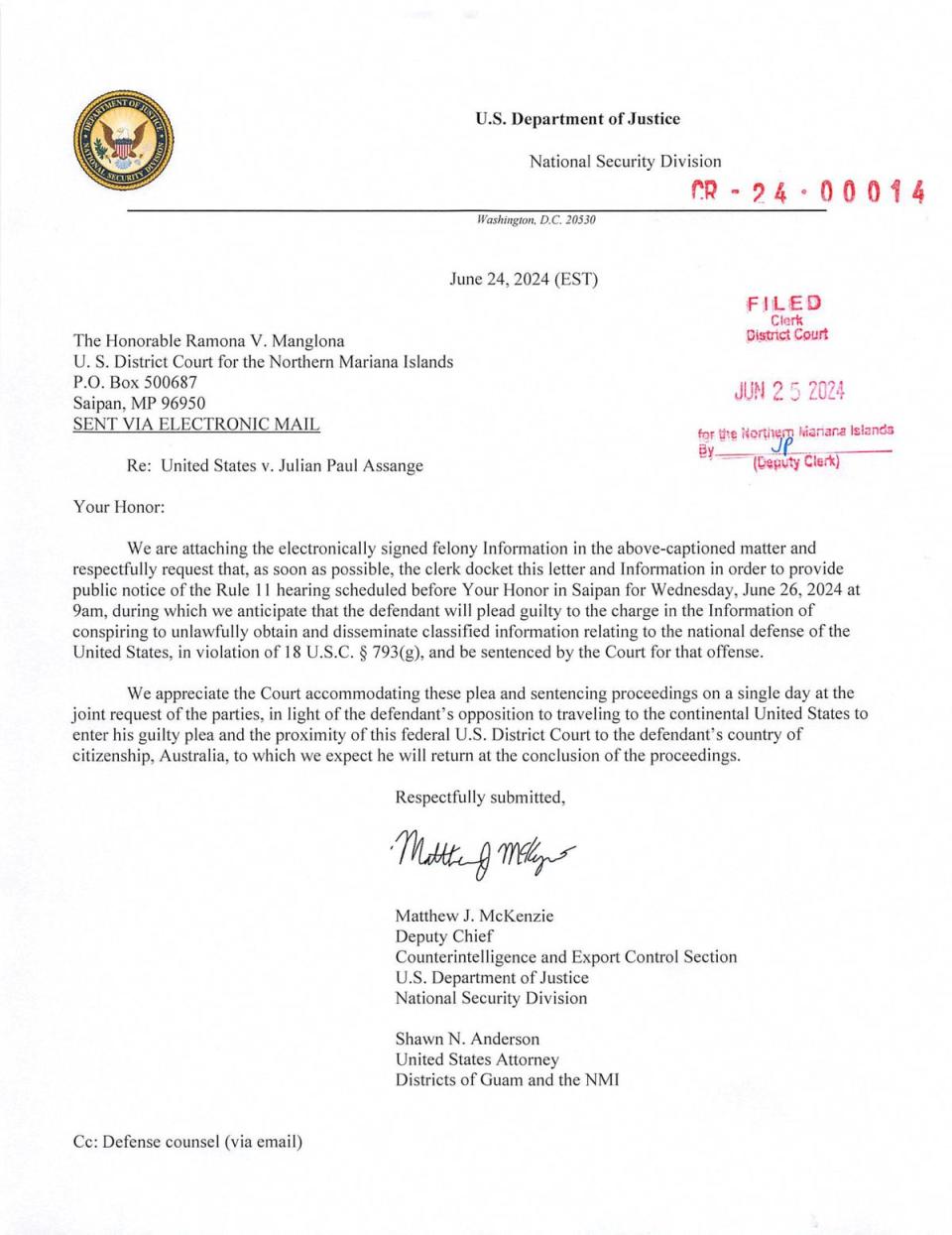
The statement added: “WikiLeaks published groundbreaking stories of government corruption and human rights abuses, holding the powerful accountable for their actions.
“As editor-in-chief, Julian paid severely for these principles, and for the people’s right to know. As he returns to Australia, we thank all who stood by us, fought for us, and remained utterly committed in the fight for his freedom. Julian’s freedom is our freedom.”
Prior to his incarceration at Belmarsh, Assange took refuge in the Ecuadorian embassy in London in 2012, and was granted political asylum after courts in England ruled that he should be extradited to Sweden to face a rape investigation there.
JULIAN ASSANGE IS FREE
Julian Assange is free. He left Belmarsh maximum security prison on the morning of 24 June, after having spent 1901 days there. He was granted bail by the High Court in London and was released at Stansted airport during the afternoon, where he boarded a…— WikiLeaks (@wikileaks) June 24, 2024
He was arrested by British police after Ecuador’s government withdrew his asylum status in 2019, then jailed for the original offence of skipping bail in 2012.
Sweden eventually discontinued its sex crimes investigation, with prosecutors saying that, although the alleged victim’s claim was credible, “the evidence has weakened considerably due to the long period of time that has elapsed since the events in question”. Assange always denied all of the allegations, saying the sex was consensual.
His family and supporters have said previously that his physical and mental health have suffered massively during more than a decade of legal battles.
Julian is free!!!!
Words cannot express our immense gratitude to YOU- yes YOU, who have all mobilised for years and years to make this come true. THANK YOU. tHANK YOU. THANK YOU.
Follow @WikiLeaks for more info soon…pic.twitter.com/gW4UWCKP44— Stella Assange #FreeAssangeNOW (@Stella_Assange) June 25, 2024
Assange has been heralded by many around the world as a hero who brought to light military wrongdoing in Iraq and Afghanistan. Among the files published by WikiLeaks was a video of a 2007 Apache helicopter attack by American forces in Baghdad that killed 11 people, including two Reuters journalists.
He was indicted during former president Donald Trump’s administration over WikiLeaks’ mass release of secret US documents.
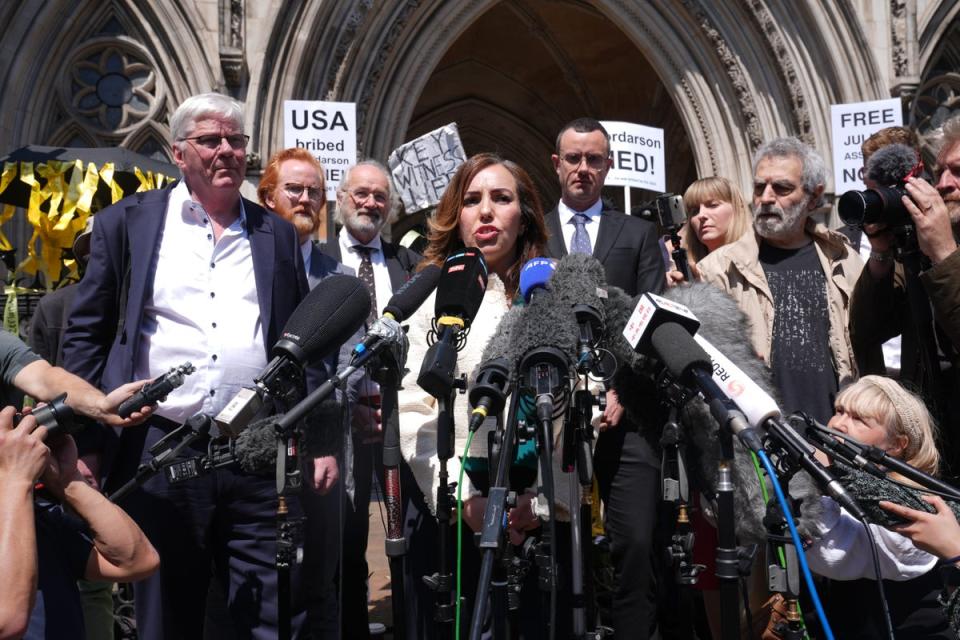
Many advocates of press freedom have argued that criminally charging Assange represents a threat to free speech.
“A plea deal would avert the worst-case scenario for press freedom, but this deal contemplates that Assange will have served five years in prison for activities that journalists engage in every day,” said Jameel Jaffer, executive director of free speech organisation the Knight First Amendment Institute at Columbia University.
“It will cast a long shadow over the most important kinds of journalism, not just in this country but around the world.”
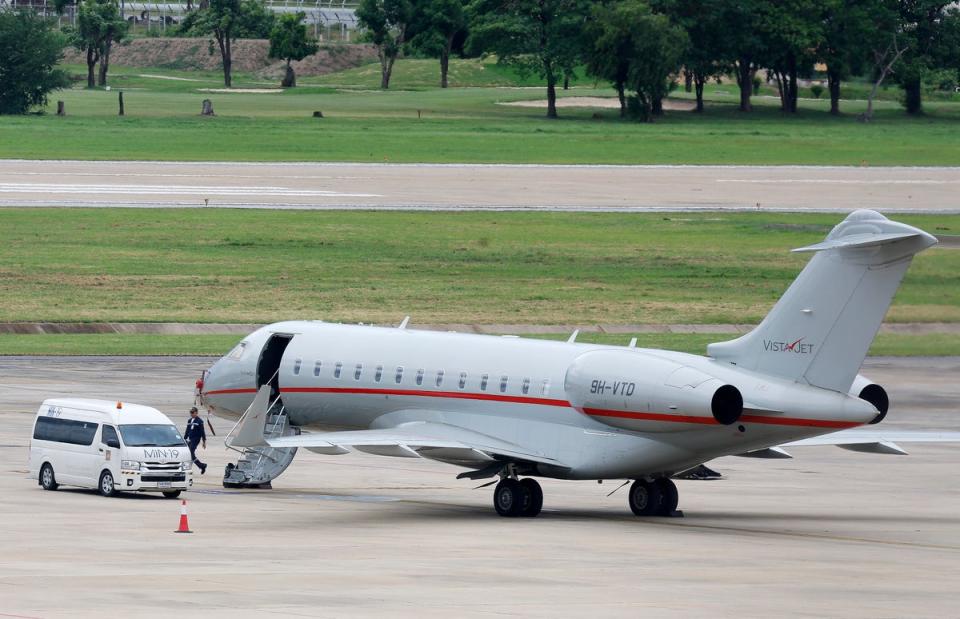
Simon Crowther, Amnesty International’s legal adviser, said: “We welcome the news that Julian Assange is to be released, as we believe he should never have been imprisoned like this in the first place. The fight to protect freedom of expression continues, though. The years-long global spectacle of the prosecution of a publisher for revealing alleged war crimes, crimes against humanity and other human rights violations has undoubtedly done historic damage.”
In Sweden, women’s rights advocates expressed regret that Assange had not been questioned over the allegations of rape and other sex crimes, which he always denied, in Sweden.
“It’s a betrayal against the women who reported him and who have not been given a chance for legal redress,” said Clara Berglund, head of the Swedish Women’s Lobby. “It’s a chapter of shame and betrayal that ends with his release,” she said. “This is about a case that takes place on the major political stages, and men’s violence against women is given incredibly little weight.”
However, one of the women who filed complaints against Assange in Sweden, Anna Ardin, welcomed his release. “I have had zero power here, but I’m happy that he is out, and hope he can fight for transparency and human rights without molesting women,” she said.
Manning was sentenced to 35 years in prison after being convicted of violating the Espionage Act by leaking classified government and military documents to WikiLeaks. President Obama commuted her sentence in 2017, allowing her release after almost seven years behind bars.


